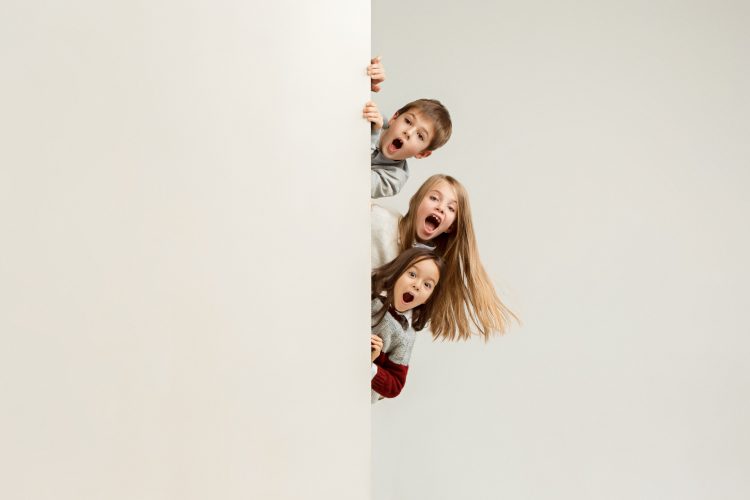When it comes to developing self-regulation skills in children, one needs to be prepared to do so with a lot of patience and plenty of care.
This is because children lack emotional development, are vulnerable, and need to be handled with empathy and understanding if one is to discipline their minds to the extent that self-regulation skills can be imparted to them.
This is true of the best private schools in Cambodia as it is of schools anywhere else in the world. One needs to start early in order to give the children enough time to train their minds to understand the concepts of self-regulation and discipline.
The best international schools in Cambodia offering the world class Montessori curriculum are well aware of this fact and follow the 8 way path to develop self-regulation in children. Let us look at what that might be:
Reading
Reading is the very foundation of the formal education system. The act of reading trains children to focus and discipline their minds towards understanding and making sense of the text presented to them.
It requires them to train their minds to imagine a scenario that may not be actually visible to the naked mind. They can be taught to do that by relating the text to pictures or representative objects like toy cars. All of this requires them to train their minds in a certain way to associate the written word with aspects of the world around them.
Little children can be made to read picture books that train them to self-regulate by presenting stories about children their age who are required to regulate their behaviour in certain social situations. You could read to them several such stories with varying lessons over a period of time to reinforce the concept of self regulation.
Teaching Prosocial Behaviour
Teaching prosocial behaviour to children at an early impressionable age gives them great practice in keeping a check on their emotions. Letting them understand when they need to use words like “please”, “sorry” and “thank you” will allow them to set boundaries on how to behave socially. They will develop an early understanding of what constitutes right and socially acceptable behaviours and what does not.
Role Playing
Getting small children to do role-playing helps them develop a sense of how they are to conduct themselves in their daily lives. Role play is different from a reading activity in that it allows the child to act out an imaginary scenario on their own, giving them more control over the course of action chosen by them. They will be better placed to work out any emotional dilemmas they might have faced while enacting a role.
Teaching children the role playing technique requires some adult inputs and supervision, but it diligently pushes the child in question to deal with situations and emotions in a certain imagined scenario, helping them attain a fair knowledge of managing their behaviour.
Taking Breaks
Playtime breaks or a restful break from the routine can help a child to find a release for all the pent up emotions inside them. This helps them let off steam and find equilibrium. Doing so on a regular and consistent basis can go a long way towards children learning self-regulation skills.
As the old proverb says – all work and no play make Jack a very dull boy. Regular breaks from a monotonous routine can help children attain equanimity. It is also a commonly acknowledged fact that outdoor physical activity is good for the physical and mental development of a child.
Blowing Bubbles
Letting the little ones breathe deeply and blow bubbles is known to have a very calming effect on them. Besides, blowing bubbles is fun for everyone. A sensory activity, it helps soothe and relax the crankiest of children. Also, the fact that this activity involves deep breathing inevitably leads to the calming of fraught nerves.
The Right Sleep Routine
We live in a time where even the smallest of children are glued to the screens of myriad gadgets that adversely impact their sleep time leading them to be irritable and agitated. This needs to be sorted out with restricted screen time, low lighting in the bedroom, a fixed sleeping schedule and a bedtime story thrown in as well. A child who sleeps well and on time will naturally be in better control of his or her emotions.
Board Games
There are various board games that can help small children understand how to follow instructions and cope with loss and victory. This lets them get a handle on managing their emotions from a very early age. It, therefore, makes a very good idea to let children try out various board games in a comfortable and familiar setting and learn to process their feelings in a mature fashion.
Understanding Emotions
Children need to be able to understand their emotions so that they can learn to conduct themselves in a more measured manner. The thing about small children is that they are undergoing a process of coming to terms with their myriad feelings and learning to express them.
A good way of helping them do that is to let them use a feelings thermometer. As they grow older the thermometer can carry illustrations that correspond to more complex feelings. It provides a great way for children to understand and deal with their emotions.
Conclusion
Helping children come to grips with their feelings and learning to regulate them can set them on the path of optimal growth and development. This is something that international schools in Cambodia well recognize and cater for using techniques like the ones described above.









